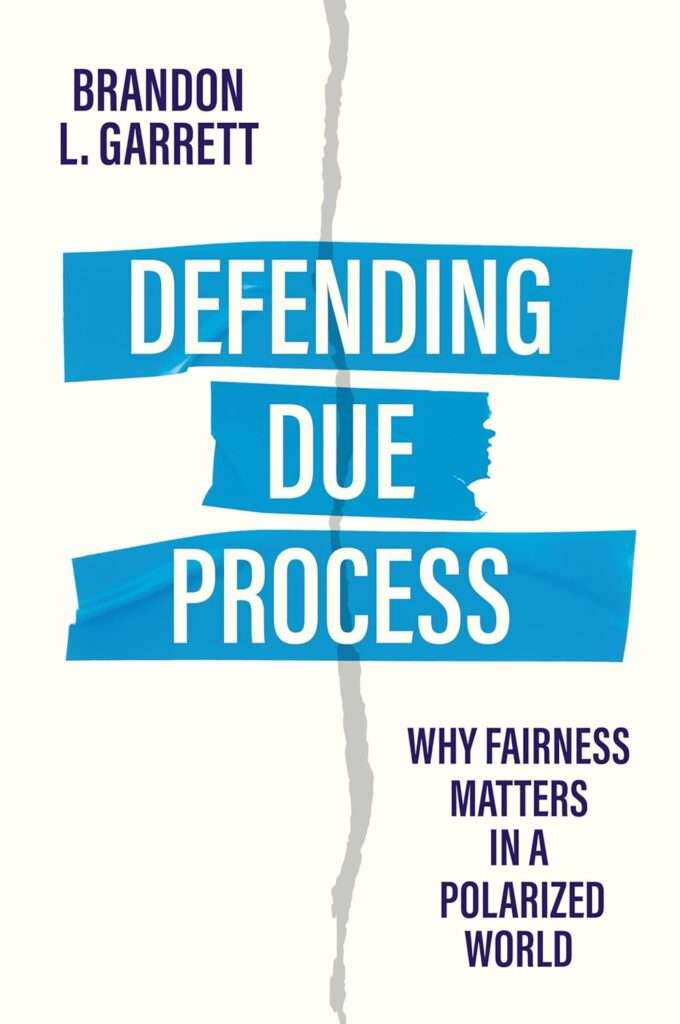The Volokh Conspiracy
Mostly law professors | Sometimes contrarian | Often libertarian | Always independent
Public Opinion and Due Process
Do we agree with Blackstone that it is better that ten guilty persons escape than one innocent suffer?
Sir William Blackstone famously said that it is "better that ten guilty persons escape, than that one innocent suffer." The maxim expressed by that English jurist was perhaps no more popular in 1765 than it is today.
In a jibe clearly directed at Blackstone and others of a similar mind, English jurist and philosopher Jeremy Bentham made light of writers call it better to save "several guilty men, than to condemn a single innocent man," and others who, "to make the maxim more striking, fixed on the number ten." Others "made this ten a hundred," and still others "made it a thousand." Such "candidates for the prize of humanity" go so far as to say that "nobody ought to be punished, lest an innocent man be punished."
If you were sitting as a juror in a criminal trial in the United States, a judge would instruct you, not on Blackstone's maxim, but on a due process-informed standard that embodies the same view: that the "defendant is presumed innocent of the charges" and that this presumption "is not overcome unless you are convinced beyond a reasonable doubt that the defendant is guilty as charged." That standard of proof reflects Blackstone's view of due process. In 1970, Justice John Marshall Harlan II in the Court's In re Winship ruling that set such a high standard of proof in U.S. criminal trials, explained: "I view the requirement of proof beyond a reasonable doubt in a criminal case as bottomed on a fundamental value determination of our society that it is far worse to convict an innocent man than to let a guilty man go free."
Do people agree with Blackstone's maxim? In a series of studies, Gregory Mitchell and I have sought to explore whether people are more on the side of Blackstone or Bentham, due process or crime control, concerning themselves more with the punished innocent or the unpunished guilty. We describe that body of research in a law review article. We posed, among others, the following simple question:
Which of the following errors at trial do you believe causes more harm to society?
- erroneously convicting an innocent person
- failing to convict a guilty person
Or, do you believe these errors to be equally bad?
In studies of over 12,000 people, and counting since the work is ongoing, we have found something both troubling and important: most people care about due process, but they are not only concerned with avoiding wrongful convictions. They also care about the outcome for public safety. Most people answered "equally bad," and were equally concerned with not setting guilty people free. So, most people do not fully embrace the bedrock assumption of our legal system that it is vital for the government to prioritize due process over public safety. The errors that they seek to avoid, or their error aversions, were equally balanced.
This is not just an abstract preference that people share, either. These error aversions translated into how people voted to convict defendants in mock trial experiments. These error aversions also corresponded with how they weighed the evidence in those experiments. In one of our recent studies, the conviction rate among people who prioritize avoiding false acquittals was 58 percent, compared to a conviction rate of 25 percent among those who prioritize avoiding false convictions, even though the two groups reviewed the same evidence.
And there is common ground, for better or for worse, around these error aversions and due process values. With so many Americans sharing the same view, there were not large differences across partisan or demographic lines. Large majorities across all groups shared the same views. In times in which politics may be polarized, these findings suggest a shared perspective. And these findings present those of us who are committed to traditional due process values with a challenge: most people do not agree with Blackstone.
These findings also help to explain persistent divides. People do not agree on how to approach questions of criminal justice and crime control. And that is not just because they disagree on what is most effective public policy. They also share divided error aversions. This may explain divided approaches on questions like bail and sentencing reform. Our findings suggest that the framing matters. Framing a solution as only helping public safety, but as not treating the accused fairly, will trouble most people. Framing a solution as only helping to safeguard due process, but not ensuring outcomes that protect community safety, will also trouble most people.
Fortunately, there is deep common ground, where people care about both due process and public safety. I agree in my book that due process questions are not normally zero sum. A fair trial can prevent errors that are costly to both public safety and due process. If an innocent person is convicted, the guilty person is also free: in that situation, both bad outcomes happen at once, which is why Blackstone's ratio is important.
And we need constant reminders that due process serves us all, and not just fairness goals. Conversely, the more people lose faith and denigrate fairness as mere window dressing, the more they will distrust the system. In an authoritarian society without the rule of law, no one trusts the process—everyone correctly assumes it is rigged—and it seems naive to bother with procedural niceties. In some online settings, we see the same thing: when digital platforms perform poorly, people see the system as broken, and they flee the space. It is not so easy when it is the government. No-one benefits if we all suffer from a due process death spiral. That is why we all need to reconsider potentially false dichotomies between due process and outcomes.



Show Comments (66)